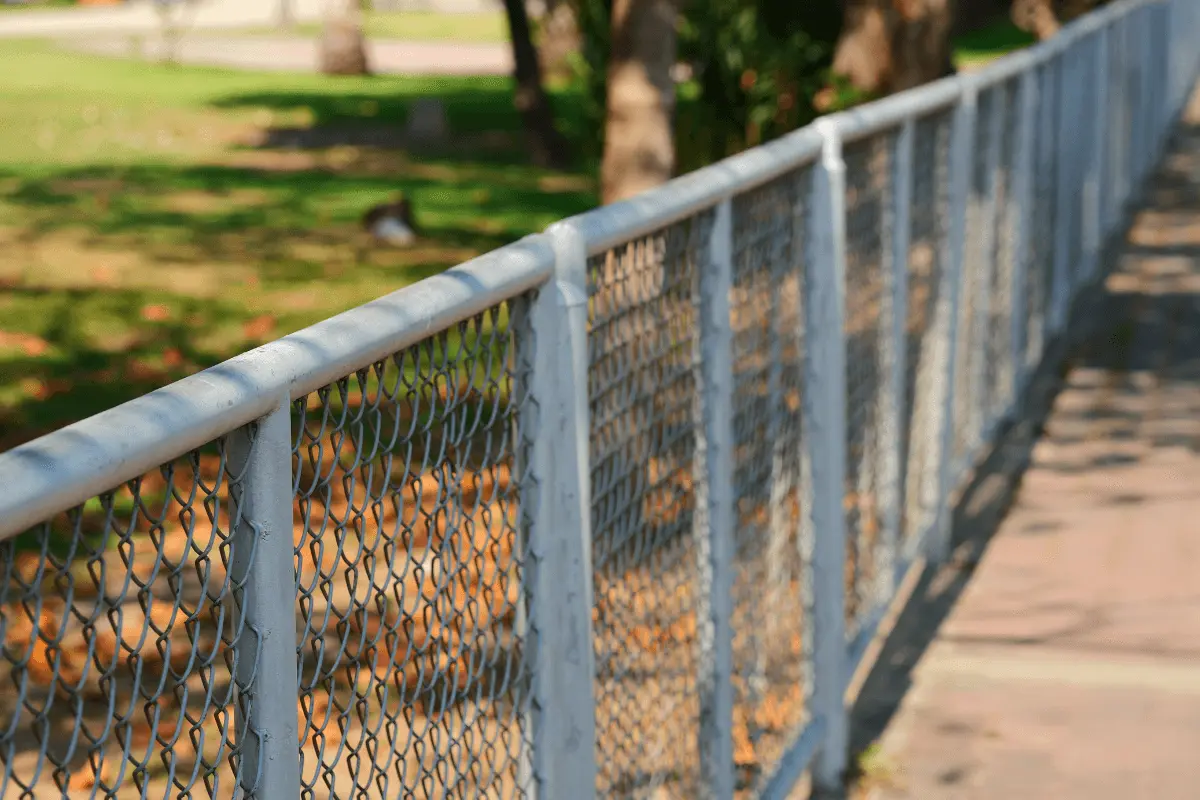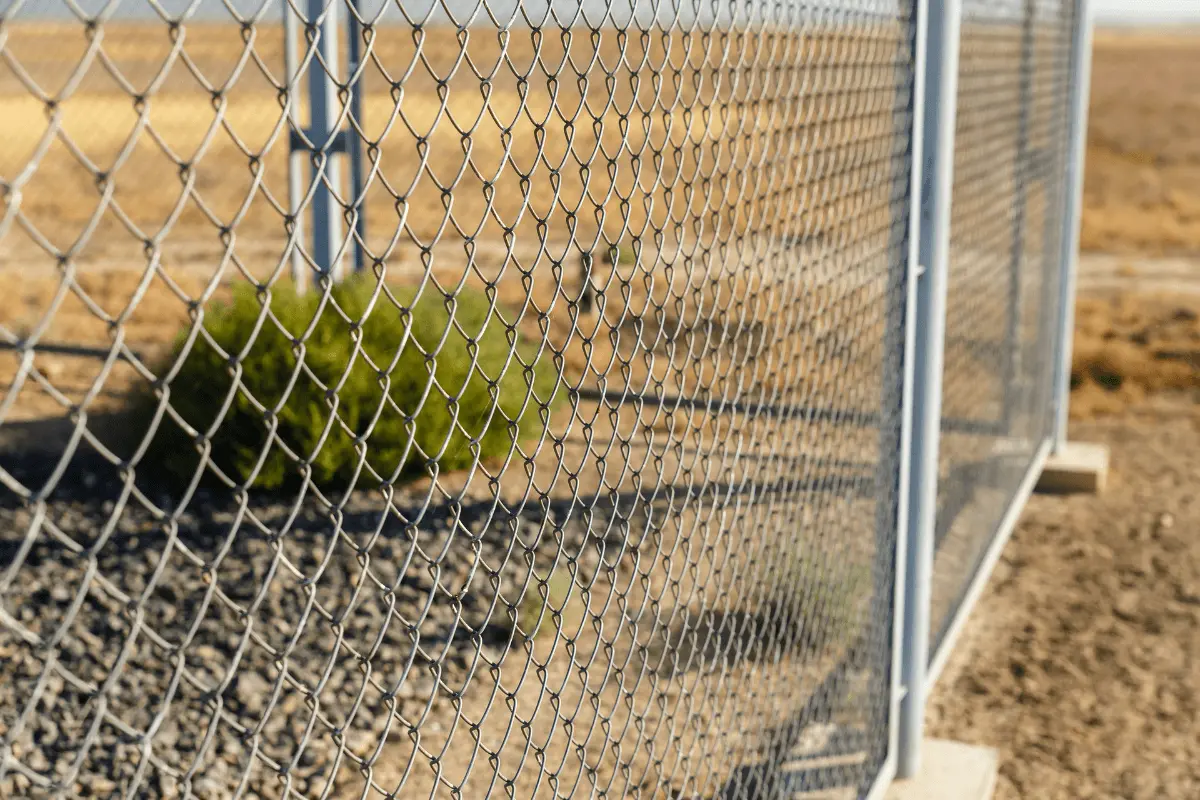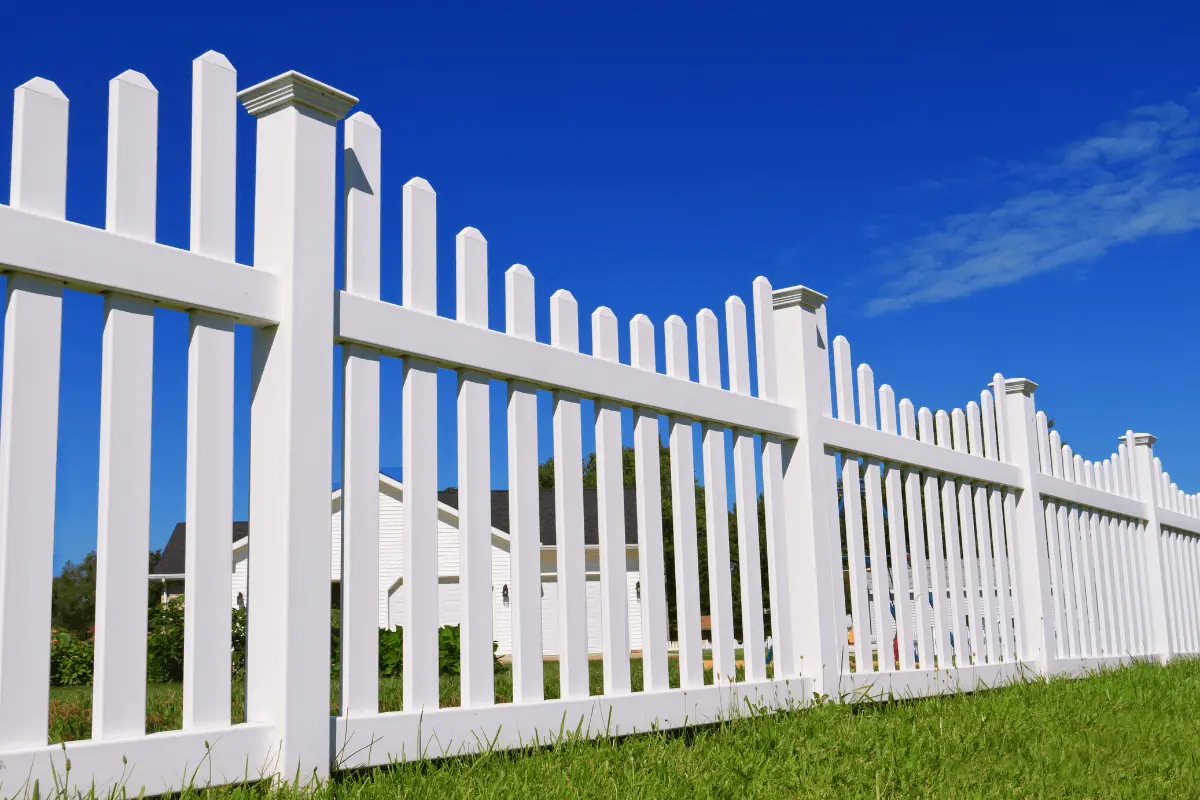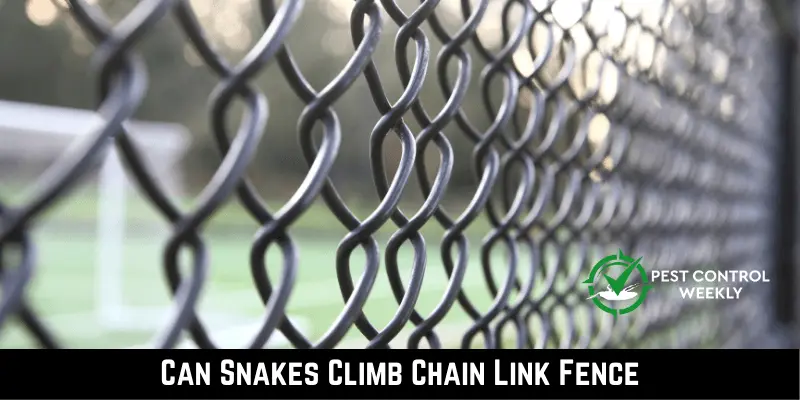Have you ever seen snakes in your yard? Do you want to eliminate them? If so, a chain link fence acts as a deterrent to prevent snakes from entering your garden. However, the question arises; can snakes climb chain link fences?
No, snakes usually don’t climb chain link fences, but it depends on their size. If they are small enough, they can also go straight through it in addition to climbing it. If you want to deter snakes, use a chain link fence along with keeping a rodent-free yard.
Read the following instructions; if you want to find out more about snake climbing activities through chain link fences.
Can Snakes Get Through Fences?
Yes, snakes can get through fences. Usually, snakes can enter your yard through fences or trees. If the fence around your yard is not snake-proof, they can easily climb it and enter your garden.

Moreover, it also depends on their shape and size. The snake-like rattlesnake is small in size, so it can easily get through fences. However, if you install a snake-proof fence, it works more efficiently than other snake repellents.
What Should Be the Height of the Snake Fence?
The height of the snake fence should be 36 inches to keep these nasties away from your home, children, and pets. However, The Canadian Field-Naturalist claims that the effect of fencing depends on the ecosystem and type of snakes. The smaller the snake, the easier it will climb the fence.
Moreover, the snake fence wouldn’t function until you employ a chain link fence around it. It offers a second line of defense and a solid framework to hold the wire mesh. Additionally, you can fasten the snake fence to the sticks to retain the mesh taut when installing it.
How Do You Make a Snake-Proof Fence?
Although pest-control fencing might be expensive, doing it yourself (DIY pest control) is cheap and easy. Below are some most common DIY methods to build a snake-proof fence.
Remove Rodents First

Since snakes prey on rodents like mice and rats, the first thing you should do is remove them all from the ground. In addition to a fence, you should protect your home, shed, and trash cans against rats.
To keep rodents away, cover the trashcans with a wire mesh and hardware clothes, and don’t leave your pet feed open. Moreover, seal all the potential entry points of rodents in your house with a wire mesh so they don’t dare to enter your house.
Employ Aluminium or Galvanized Wire Mesh

Aluminum or galvanized wire mesh is best for making a snake-proof fence. Additionally, aluminum fencing is sturdy, resilient, and corrosion-resistant while being lightweight and flexible. Moreover, it’s cheaper than typical metal mesh.
On the other hand, galvanized steel is a more durable alternative to mesh. By dipping metal into molten zinc, the process of galvanization produces a highly durable protective coating. However, according to the Defense Technical Information Center, galvanized stainless steel fencing consists of polyvinyl chloride PVC, which may wear down early in warm and humid atmospheres.
Choose a Small Weave Opening
Wire mesh snake fences must have a tiny weaving aperture. Choose hardware cloth or metal mesh with a weave opening that is no greater than 1/4 inch. Keep that in mind, larger things are not sufficient to keep snakes out. Weave openings that are too big are one of the most typical problems with inefficient pest-control fencing.
Maintain the Proper Height and Depth
Improper height and depth of the fence is the most common problem of snake fencing. Install a fence that is three feet or higher off the ground for best effects. Another smart move is to set the metal mesh at a 30-degree angle, which will make it harder for snakes to scale it.
Moreover, make sure to have sufficient material to bury it almost 10 inches down the ground. In this way, snakes can’t crawl over or under the fence. Additionally, trim all the bushes of trees regularly so that snakes can’t make their way through them to the mesh.
Employ Vinyl Fencing

Vinyl is a flat and slippery material so it is best for making snake-proof fencing. Consider replacing your fence with vinyl if you have the money to buy it and love its appearance. You may also make it difficult for snakes to climb by tilting it outward. However, it’s tricky to do so, thus you should take help from a professional.
Seal All Gaps & Cracks
As snakes can pass through the small opening, you should seal all the gaps or cracks in the fence. This covers any little crevices or spaces, such as those between fence panels and gates. Therefore, you should tightly seal the entire length of the fence to keep away snakes. Moreover, inspect it regularly, especially after the rain.
Ideal Snake Fence Mesh Size
The ideal snake fence is sturdy enough to keep out snakes without harming them or becoming entangled in them. Snake fences of numerous sizes are available, from small to large openings, and the most important thing is the size of the opening.
Depending on the species of snakes in a particular region, snake fence mesh should have openings ranging from 1/2×1/2 to 1/4×1/4 in size. This fencing should be staked to the ground to prevent snakes from crawling up under the snake fence. What’s more, the best type of snake fence is the galvanized stainless steel fence that serves as corrosion resistant.
Snake Fence Installation
You can install a snake fence in your garden or yard by following the below steps.
- First, cut the wire using scissors or cutters.
- Now, attach these wires or mesh with the existing fence using metal screws, placing at least eight inches on the top and bottom of the fence.
- Make sure that gaps between corners of fences or walls should be less than ¼ inches.
- Moreover, maintain hygiene in your yard so that snakes don’t dare to visit there.
- Furthermore, install a door sweep to secure the bottom parts of the fence.
Snake Fence Installation Cost
Snake fencing consists of a foot-deep layer of 1/4-inch mesh affixed to an already-existing fence. Installing snake fencing approximately costs $7–$9 per linear foot, or $400–$550 for a fence around a 20’x20’ courtyard.
Furthermore, depending on local prices, travel distances, the type, size, and difficulty of the snake to be removed, hiring a professional to get it out of a house or other building can cost anywhere from $100 and $600 or more.
Final Thoughts
Snakes are one of the most dreadful and dangerous animals. They not only harm humans but also cause damage to crops. Installing a snake-proof fence is the best approach to keep them out of your house or yard.
Additionally, a snake fence made of wire mesh can be quite efficient in keeping snakes out of a specific region. If you live in an area where snakes are common and are concerned about them getting onto your property, a properly placed snake fence might solve your problem.
Above all, if you aren’t trained enough to install a mesh by yourself, ask for help from a professional fence installer.
